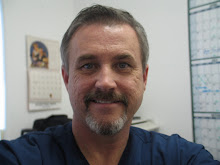Surely when we each started our prerequisites in undergraduate pre-dentistry, all the sciences and technical courses, we didn't expect the process of becoming a dentist to include having to deal with the many nuances of people, urr, patients did we? Of course they will come to the door worshiping our level of knowledge and do what we recommend, right? Isn't that what being a doctor is; we kindly tell them what is wrong and what it takes to solve the problem and they say, "whatever you say, you are the doctor" and we then do it, right?
Of course, anyone who has practices for any time soon realizes that other things MAY be more important to our patients than the health of their mouth. That is why I feel the SINGLE most important skill we learn as (successful) dentists is to be a student of human behavior and APPLIED psychology.
We all learn HOW to do the procedures that people need, however, they do not always see it the way we do. There are other bills to pay, there are preconceived notions about the "shoulds" of dentistry, there is family culture and history to consider, it is more complicated that we ever thought.
So, what can we do? We can decide to limit our practice to those that appreciate our talent and skills and want to know all the details (sort of like wanting to have a practice of only people who think like we do, right?)
Or the other option is to listen to what the patient desires and spend the rest of our practice lives helping our patients want what they need IN THEIR TERMS!
The general concensus is that only about 15% of the population thinks the way we do (analytical, logical, want to know all the facts before deciding) and the remaining 85% usually think a little differently than that, don't they?
More later, but I personally believe, and have seen the results of, what I think is really the key to this challenge:
MAKE A COMMITMENT TO CREATING RELATIONSHIPS OF TRUST WITH OUR PATIENTS!
Wednesday, November 11, 2009
Subscribe to:
Comments (Atom)
